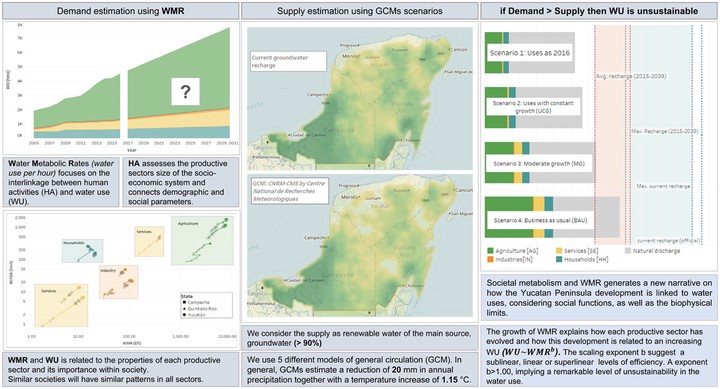Water societal metabolism in the Yucatan Peninsula. The impact of climate change on the recharge of groundwater by 2030
 Image credit: Edgar Rodríguez Huerta
Image credit: Edgar Rodríguez Huerta
Abstract
The demographic and economic growth in Yucatan peninsula (YP) in recent years has caused changes in the hydrological response and flow of the water cycle. The growth effects and its impact on society are poorly understood. Here we present an estimation of water consumption and its evolution based on the analysis of Yucatan Peninsula’s societal metabolism, using the interdisciplinary tool MuSIASEM. Societal metabolism together with metabolic patterns generate a new narrative on how the YP development is linked to the uses of water, considering social functions, as well as the biophysical limits established by the annual recharge of groundwater, being it the main source of water supply. Given the current trends in YP socio-economic growth and climate change scenarios, our results show superlinear scaling relations between water metabolic rate and water consumption which leads increase in water consumption and 23% decrease in groundwater recharge by the year 2030. The consequences of this scenario are particularly worrying for the near future, given the current socio-economic structure in YP, highly dependent both on the services (i.e., tourism) and agriculture sectors.
Supplementary notes can be added here, including code and math.